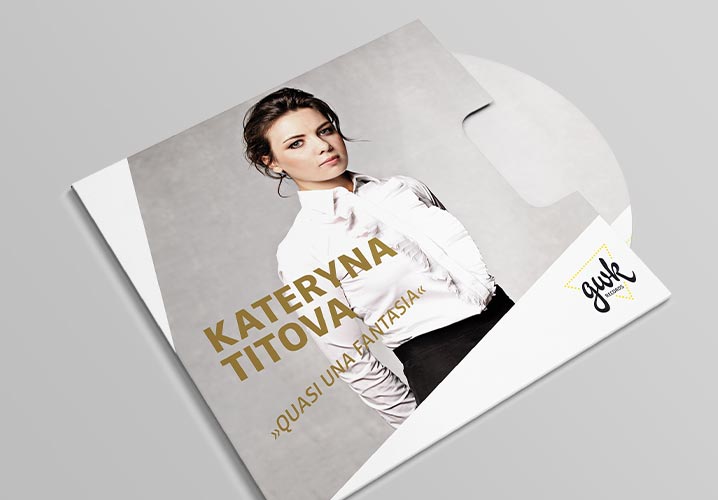
Kateryna Titova: „Quasi una fantasia“
This young pianist from Ukraine has been awarded first or second prize in twenty international piano competitions, e.g. in 2002 at the Alicia de Larrocha competition in Andorra, in 2004 at the International Russian Music Piano Competition in San José, California, in 2005 at the International Rubinstein Piano Competition in Dresden, in 2008 at the James Mottram International Piano Competition in Manchester and in 2013 at the international piano competition ‘Spanish Composers’ in Madrid.
Kateryna Titova began playing the piano aged five. She attended the Kharkov Special Music School in Ukraine before taking up her studies at the Tchaikovsky Central Music School in Moscow. From 2001, she continued her studies in Germany, initially at the Musikhochschule Münster under Prof. Michael Keller, then under Prof. Arkadi Zenzipér at the Hochschule für Musik Carl Maria von Weber Dresden. She gained the International Artist Diploma under Norma Fisher at the Royal Northern College of Music in Manchester and studied under Prof. Boris Petrushansky at the Imola Piano Academy in Italy. Igor Blagodatov, a student of Jacob Milstein and one of the leading pianists in the Russian piano school tradition, had a great influence on her artistic education. Kateryna Titova has appeared as a soloist and chamber recitalist throughout Europe, Russia, Ukraine and in the USA. She recorded a CD of chamber music with oboist Ramon Ortega Quéro for the label GENUIN. Kateryna Titova is the recipient of scholarships from the Vladimir Spivakov Foundation in Moscow, the Oskar and Vera Ritter Foundation, the Lutz-E. Adolf Foundation and the GWK, whose Young Artist Award she received in 2002. She has also received support from Rotary International and, in 2016/17, from the Funk Foundation.
Her latest CD recording, with the support of the Funk Foundation, is dedicated to the theme of fantasy: ‘My wish to make classical music more accessible to a wider audience – one that is not necessarily musically educated but that does have a taste for the art form – was the inspiration for the pieces selected for this CD. I believe that improvisational music that flows freely from the player’s imagination to the instrument is particularly accessible and that it can arouse or enhance the listener’s interest in more complex musical contexts. Even if the sonatas I have selected here are derived from fantasy, and also reflect this in their titles – Beethoven and Voříšek each wrote a Sonata quasi una fantasia, Skrjabin a Sonate-Fantaisie and Mendelssohn a Fantasie – the pieces are musically multi-layered despite their popularity and accessibility.’
To give you an impression, Tthere is a making-of video on the CD project here.

